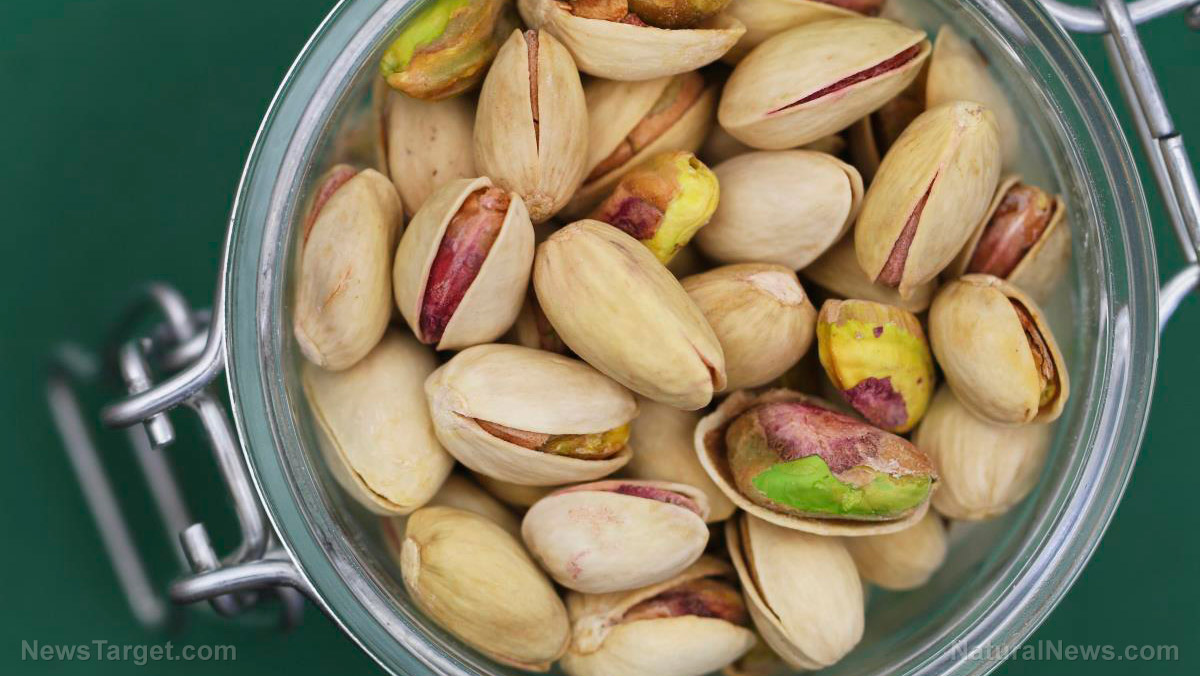Painful periods? Taking vitamin B1 daily can help
06/20/2018 / By RJ Jhonson

There have been many claims of effective nutritional treatments for pain caused by dysmenorrhea, but few have actual studies to back them up. A randomized double-blinded trial conducted in India found that thiamine or vitamin B1 could provide some much-needed comfort from menstrual cramps.
The study involved over 550 women, 277 of whom were given 100 mg of vitamin B1, while the rest were given a placebo. The participants were told to drink the medicine daily for two months.
At the end of the study, 142 of the 277 women who received the vitamin B1 supplement reported pain relief, while none of those in the placebo group reported experiencing any improvement.
The findings of the study provide clear evidence of vitamin B1’s viability as a dietary and nutritional supplement for women who want relief from menstrual cramps.
Dysmenorrhea occurs when prostaglandin, a chemical that naturally occurs in the body, causes contractions in the uterus. Very strong contractions press the uterus against surrounding blood vessels, cutting off the supply of oxygen to the uterine muscle tissue. This brief loss of oxygen is what causes the pain. (Related: Relieve Dysmenorrhea Pain with Acupuncture.)
Some estimates indicate that the prevalence of dysmenorrhea can vary from 16 to 91 percent among women of reproductive age. About two to 29 percent of those who have dysmenorrhea experience severe pain enough to prevent normal function.
The cramps usually begin a day or two before the start of bleeding and can be accompanied by other symptoms, including nausea, diarrhea, and fatigue. Common dysmenorrhea usually becomes less painful as the woman grows older. Having a baby may also stop it altogether.
Mother Nature's micronutrient secret: Organic Broccoli Sprout Capsules now available, delivering 280mg of high-density nutrition, including the extraordinary "sulforaphane" and "glucosinolate" nutrients found only in cruciferous healing foods. Every lot laboratory tested. See availability here.
Natural sources of vitamin B1
Thiamine or vitamin B1 is one of the B-vitamins, which are essential to the conversion of the food one eats into glucose, the body’s main source of energy. It is notable for its many benefits, which include ensuring proper digestion, enhancing memory, improving immunity, elevating mood, and protecting the nerves from damage.
Consuming thiamine is therefore necessary whether for its nutritional benefits or its pain relieving properties. Here are food items that contain rich amounts of this nutrient:
- Nuts – Their small size packs a nutritional punch, housing an abundance of vitamin B1 and other vital nutrients. Notable sources of thiamine are pistachios, pecans, Brazil nuts, and cashews.
- Fish – Fatty fishes are great sources of omega-3 fatty acids essential to a healthy heart. They also contain rich amounts of vitamin B1. One of the best sources of thiamine is tuna, although trout doesn’t lag far behind. One can also get thiamine from salmon and mackerel.
- Pork – This meat is a compact source of vitamin B1, but must be eaten with care as too much of its fat isn’t good for the cardiovascular system. To curb the risks, it’s better to choose lean cuts over fatty ones.
- Beans – Those who want to increase their vitamin B1 intake cannot go wrong with beans, all kinds of which are rich in the nutrient. Navy beans have the highest thiamine content, although soy, black, mung, and pink beans are just as good.
- Seeds – Various types of seeds make for good sources of the vitamin. These include sunflower seeds, chia seeds, sesame seeds, and squash seeds.
- Squash – The squash is one of the nutritionally rich vegetables. Different varieties can offer various nutrients that include a wide range of crucial vitamins and minerals. The acorn squash, butternut squash, and Hubbard squash are notable for their thiamine content.
- Asparagus – This is one of the best sources of vitamin B1 among green-colored vegetables. To get the most nutrients, one should eat asparagus fresh but cooked.
For stories on natural remedies for dysmenorrhea, among others, go to Remedies.news.
Sources include:
Tagged Under: alternative medicine, alternative treatments, dysmenorrhea, menstrual cramp, menstruation, natural cures, painful periods, period, vitamin b1, women's health




















